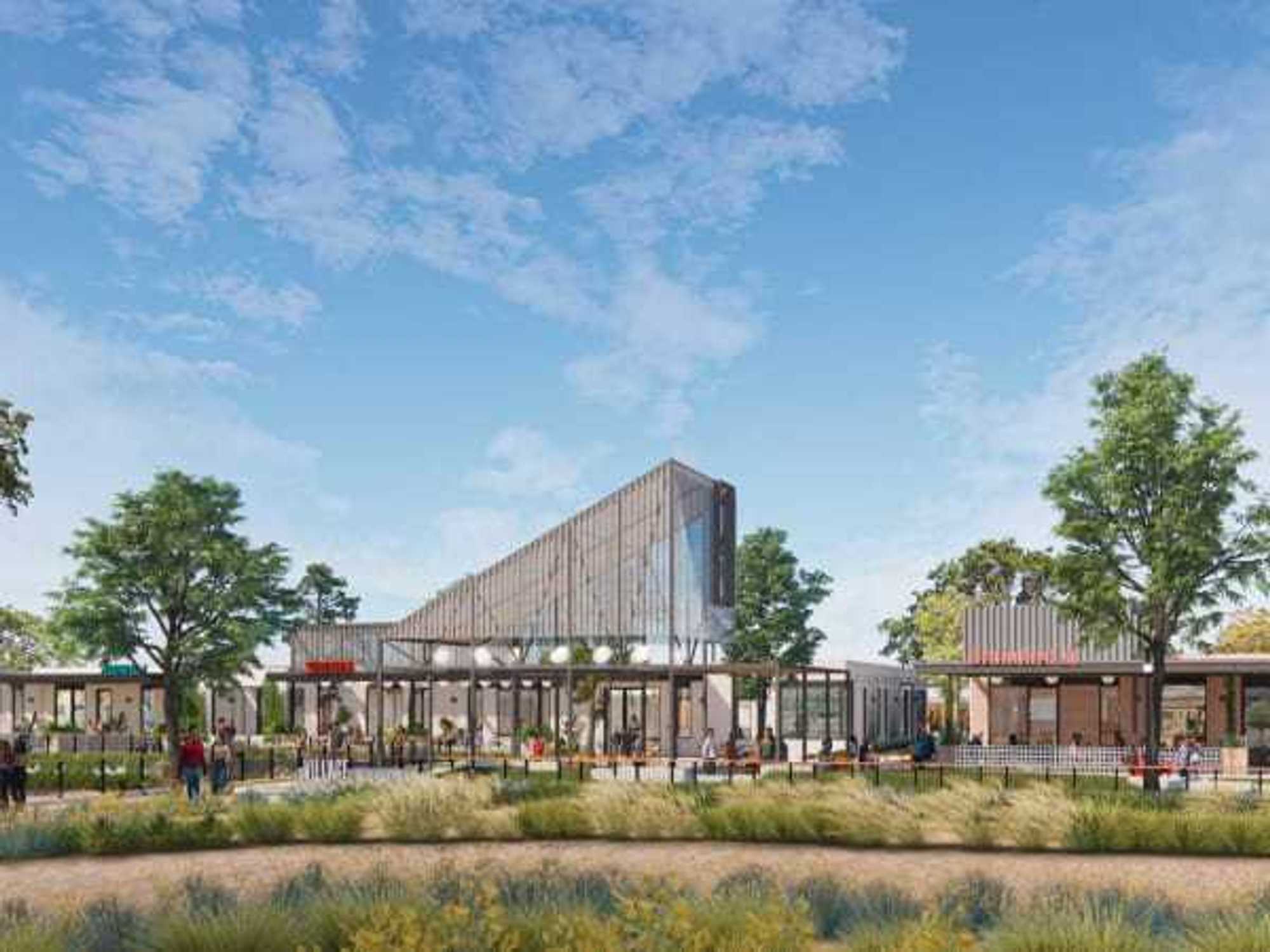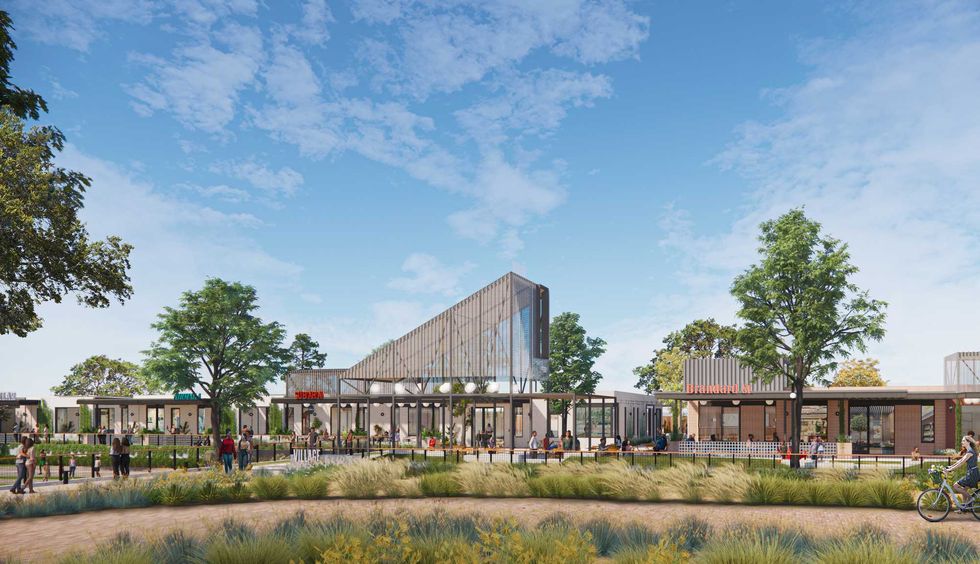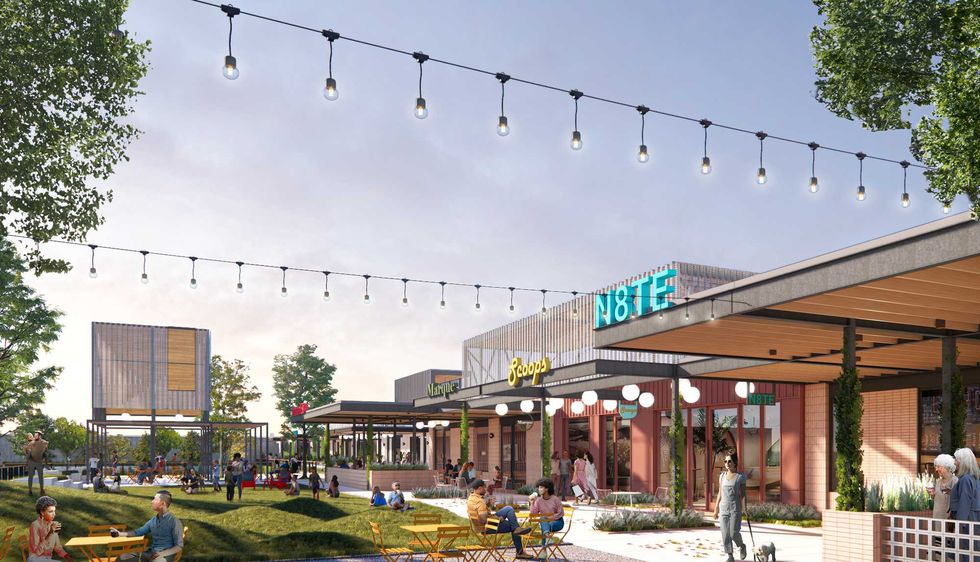Real Estate Predictions
How long will Houston boom last? Top 5 real estate predictions for 2014
Houston’s real estate market is one of the hottest in the world. Nothing this good lasts forever and some say job growth won’t be as strong next year. But the boom is not over yet.
With a few exceptions, both residential and commercial real estate will continue to sizzle in 2014 and produce as much pop as it did in 2013.
Here are the top five predictions for Houston real estate in 2014:
1. Home sales will soar; prices will reach a historic climax
The inventory of homes-for-sale is at a record-low as 2013 comes to a close. The pent-up demand is huge. Thousands of buyers, frustrated with losing in bidding wars and today’s small selection of options, jump into the market and buy houses as spring uncoils.
Lawrence Yun predicts 30-year fixed-rate mortgages will be at 5.4 percent by the end of 2014, up from the current rate of about 4.5 percent.
Hordes of relocation buyers swarm into Houston as Exxon Mobil, Geico, Chevron and other corporations shuffle employees in 2014. Look for the median home price in Houston to rise 8 percent in 2014.
Complications: Mortgage interest rates rise. Lawrence Yun, chief economist of the National Association of Realtors, predicts 30-year fixed-rate mortgages will be at 5.4 percent by the end of 2014, up from the current rate of about 4.5 percent. It won’t make things any easier for the first-time home buyer.
2. Apartment developers continue to binge-build in 2014 before a sobering sets in around next Thanksgiving
New multifamily projects pop up on the skyline faster than mushrooms in a damp cow pasture. Downtown residential excites in 2014 with the Marvy Finger building next to Minute Maid stadium and Hines going high-rise at Market Square. Developers erect apartments in far-out suburbia in addition to the phenomenal boom in the Inner Loop. Rents have gone up 6 percent over the last year or so and even more increases lie ahead in 2014, according to Delta Associates. Apartments attract renters who don’t like the higher priced mortgages facing homebuyers. Young professionals abhor the suburbs and don’t buy into the American Dream of homebuying like prior generations, providing more fuel for multifamily.
Complications: Even with Houston’s amazing job growth, sometime in the fourth quarter of next year, the voice of moderation will whisper across the marketplace: “Do we really need to break ground on another apartment?”
3. Shopping center market finally takes off, turns on the after-burners
Retail-oriented real estate (shopping centers, etc.) has been the ugly orphan in Houston’s recent real estate surge. Apartments, the office market and residential boomed, while retail was a modest performer. The maxim is true: “Retail follows rooftops.” And Houston has added a lot of rooftops, from new apartment towers in the Inner Loop to single-family homes in the suburbs, so retail is blossoming. Lots of retailers coming in: from grocers to fast food outlets. Fresh Market, Sprouts, HEB, Whole Foods, Aldi, all adding new locations. Landlords have moaned as rents have been declining in many shopping centers. But the turnaround is happening and rents will increase in 2014. The threat of online sales may not be as bad as feared as Christmas delivery issues dented the invincibility that cloaked online retail.
The maxim is true: “Retail follows rooftops.”
Complications: Houston can’t be a great city without downtown retail. Macy’s was demolished. Houston Pavilions sputtered. Mayor Annise Parker appointed blue-ribbon retail task force for downtown, but so far not much has happened to the streetscape. Midway Cos. and Magic Johnson’s Canyon-Johnson are redeveloping the Pavilions as GreenStreet, a providing a slim ray of hope.
4. Hoteliers get happy. Drought is over. More hotel construction slated.
Houstonians won’t be able to ignore the hotel construction boom breaking out in 2014. Citywide hotel occupancy is approaching 70 percent, up sharply from the 55 percent in the pits of 2009. Most noteworthy of the new hotel projects will be the 1,000-room Marriott Marquis, adjacent to Discovery Green and the George R. Brown Convention Center. When that 30-story hotel is completed in 2016, Houston will be able to attract larger conventions – that is a given, nothing theoretical about it. Local hotelier Nick Massad is doing his part to build the convention draw by constructing a Hampton Inn and a Homewood Suites on Crawford Street. A JW Marriott will open on Main Street. Across the street from the Galleria, a 350-room Hyatt Regency is under construction.
The national economy continues to improve and that bodes well for hotel operators. The PKF hotel consulting firm forecasts that national hotel profits will be up 13 percent in 2014.
Complications: None. Houston hoteliers have a long way to run before they overbuild this market.
5. Home building roars in Houston, the best single-family market in the nation
Houston home builders continue to bounce back from the dead lull during the recession. After a good 2013, expect to see more than a 10 percent increase in construction starts in 2014. New builders enter the Houston market, eager to get a piece of the action. Labor shortage and lack of available lots will moderate the pace, which could soar even higher without these restraints.
After a good 2013, expect to see more than a 10 percent increase in construction starts in 2014.
Developers and builders will be in hot pursuit of land and new Grand Parkway expansions open up prairie for development. The market for residential land is white hot. The hard years of 2009 to 2011 weeded out the weak operators, so the remaining home-builder corps is seasoned and sharp. An under-publicized fact: Houston is the strongest home building market in the nation with more single-family building permits than any other city, according to John Burns Real Estate Consulting. Houston will remain the leader in 2014.
Complications: Mortgage rate hikes will put a damper on sales, particularly in the low-end of the market. Builders will compensate by cutting size or amenities to keep starter homes affordable. Financing remains difficult to obtain for smaller developers and builders.
Ralph Bivins, former president of the National Association of Real Estate Editors, is founding editor of RealtyNewsReport.






